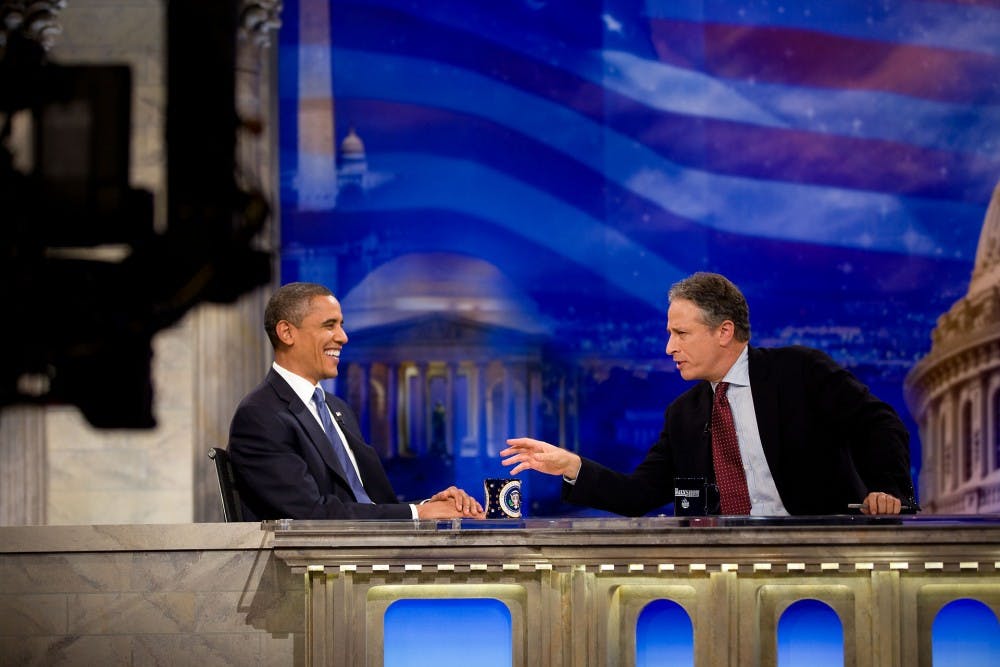“Spectacle is the sun that never sets over the empire of modern passivity”- Guy Debord
As the 2018 midterm elections approach, political discussions are becoming more and more common, especially on our campus. In my experience, however, many of these discussions are held casually, almost flippantly, as if we were discussing the latest sports or celebrity gossip. It is crucial that our generation create a way to maintain the pervasiveness of politics while injecting a larger sense of seriousness into how we talk about it.
Today, especially for people in our age demographic, everything is filtered to us through the lens of brevity and entertainment. Our social lives, media, sports, and news sources are packaged so that they can be consumed in short, flashy bursts of information, and studies have shown that this reduces our attention spans. We are slowly being wired to pay less attention to nuance and detail, whether that be through only skimming the headlines of articles sent to us via a news aggregator, watching a NowThis video, or only interacting with friends through Snapchat stories. As students at Princeton, where every moment of the day has to be carefully budgeted, we are most prone to these symptoms.
This mindset creeps into our political participation too. According to the Pew Research Center, 67 percent of Americans receive some of their news from social media. It’s easy to get the latest political news by scrolling through your Twitter feed, only stopping to watch the latest gaffes or brutal political satire, instead of reading a candidate’s policy positions or watching a debate. Making matters worse, Saturday Night Live and The Daily Show are more fun to watch than CNN. It then feels more natural to talk about Matt Damon’s hilarious Brett Kavanaugh impression or Melissa McCarthy's repeated skewering of Sean Spicer than it is to deal with the real political realities these events have produced. This is reflected in how we discuss politics, as if it were just another sport or television show, with only the most ridiculous or laughable political incidents being emphasized.
Even politicians are now much more accustomed to using theatrics and over-the-top rhetoric to entice voters. One need only look at President Trump’s Twitter feed to catch a glimpse of how political discourse is now boiled down to brief, melodramatic, and attention-grabbing slogans. This phenomenon alone has completely shifted what we view as acceptable from political leaders, creating a world where real articles are written about the potential for entertainers like Kanye West or The Rock to run for President. The only qualification for leadership now seems to be star power, which only distracts from real, consequential policy.
We are at risk of losing track of the differences between political events and entertainment. Both focus on competitions and drama, and both attract heavy emotional investment from spectators, but only has an outcome with profound consequences for democracy. When electoral coverage is conveyed through the same lens as football highlights or the latest developments in House of Cards, both start to blend together as pure entertainment, and we forget that the two should not command the same attention or reactions. We begin to view politics as a spectacle, similar to TV, and not as a system in which we as citizens play an indispensable role.
Of course, there are upsides to this paradigm. In exchange for some of the necessary seriousness and subtleties, our modern politics is now more ubiquitous and accessible than ever. It has never been easier to obtain information in the internet age. People who do not have the time to read a full newspaper every morning can now get the essential points in brief videos or social media posts, a positive thing for democracy and for our elections.
The trouble lies in finding a way to maintain this level of access to political information without losing its impact. We are forced to ask ourselves if it is ultimately possible politics to become a medium dictated by the norms of the internet while also maintaining real democratic engagement. It is on all of us, as members of the first generation to deal with this new dilemma, to consider whether there is a way to balance the insights of our new fast-paced, media diet with a more solemn, measured approach to politics.

Ben Gelman is a first-year from Houston, Tex. He can be reached at bgelman@princeton.edu.









